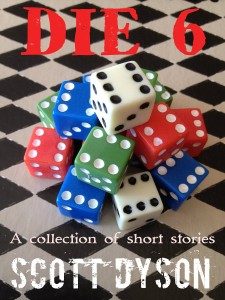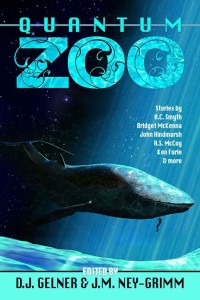I was touring blogs over my lunch hour here at the office, and came across this interesting selection on The Passive Voice, titled Rockets, Robots, and Reckless Imagination. It’s an article about science fiction in Pakistan and how popularizing it as a genre might benefit the country down the road, and why the author believes this to be true. I liked the article, but as is often the case, the comments to the article are very thought provoking.
So I started thinking about what Science Fiction was, to me. Sometimes I think it’s one of those “I know it when I see it” types of things. I read a novel or a short story and I know if its SF or something else.
I believe there are two different things in play. First, there are the trappings of SF. Think Star Wars. Think Buck Rogers. Think Star Trek, even. Put futuristic weapons in a story, set it on a different planet, at some point in the future, and some people will box it up and call it “Science Fiction.” Is it? Hardly, in my view.
Star Wars has a lot of SF trappings in it. There are space ships, robots, laser weapons, interplanetary travel, and aliens in that universe. Another example is a Stephen King short story called “The Jaunt.” Have you read it? It deals with a way to travel between two distant points instantaneously. It’s sort of like warp drive or teleporting in the Star Trek universe. Is it science fiction? I say it’s not. The only point of the wormhole, or whatever it is that allows them to travel between the two points, is to create a real horror story. It uses a science fiction device to tell a frightening tale.
Instead, I believe that it is the second thing that makes something a science fiction story, and that thing is “idea.” Good science fiction explores ideas, extrapolates them into the future and tells a story within the framework of that idea. Can dystopian fiction be science fiction? I believe it can be. Can post-apocalyptic fiction be SF? Again, my answer would be “yes.” But SF can be many things. Sometimes it’s a mystery or a thriller, set in the future and using ideas about the future at its core. (I’m thinking of some of Asimov’s robot stories, and also of the fiction of Steven M. Moore.) Sometimes it is more straightforward, focusing on the effects, near-term or far-flung, of some important scientific discovery that is within the realm of possibility, however improbable.
You can’t just throw out a handful of SF trappings and make something “science fiction.” Those trappings have to be integral to the story. As has been said in many places and many times, Star Wars could have been set in the old West (and in fact, may have been set in imperial Japan?) and the story would be the same. You could replace the lasers with revolvers or swords, you could replace the robots with people, and you could replace the spaceships with horses or trains or whatever, and you’d have essentially the same story.
Take a science fiction story and replace the “trappings” of SF in it, and you won’t have the same story. You likely won’t even have a story.
To me, SF takes an idea, maybe from today, and extrapolates it in some way, shape or form. It may or may not have robots, lasers, and space ships, but it will have an idea that has become integral to the story.
*****
The comments at TPV talk about religion versus science, and one poster (Antares) points out that for most of us, science has an element of faith in it. We put faith in a scientist or a teacher or a research paper and accept its pronouncements as truth, much the same way that we accept the pronouncements of a church or a religion as true. He mentions that few of us have actually done the work to “see” that DNA is a double helix, but we accept that it is based on the assertions of scientists and observers. I found this interesting. Something about it seems short-sighted, but I can’t figure out exactly what it is. Anyone have any thoughts?
*****


